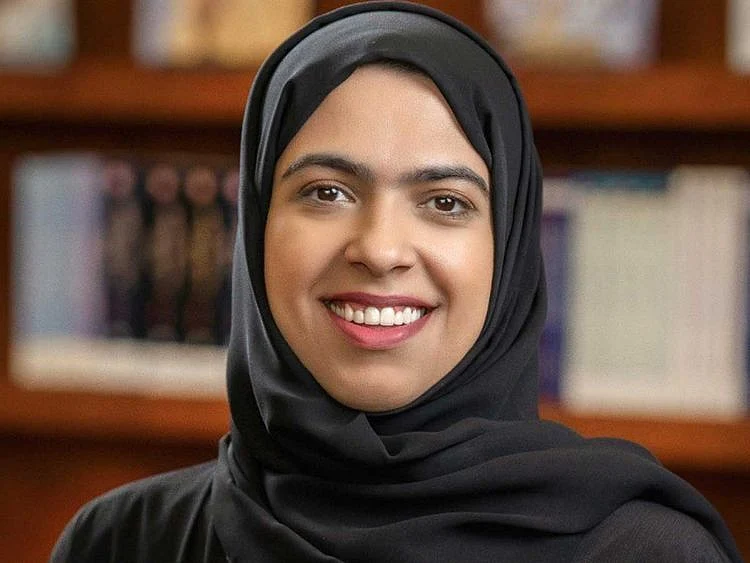COVID-19: UAE moving rapidly towards herd immunity as high priority groups being vaccinated
Common question on vaccination that UAE residents have, answered by top DHA official

Dubai: The vaccination drive across the UAE is moving very well, says Dr Hanan Al Suwaidi, Chair of Testing Stream at the COVID-19 Command and Control Centre and Assistant Professor of Family Medicine at the Mohammad Bin Rashid University in Dubai.
In an exclusive interview with Gulf News, Dr Al Suwaidi tackled questions fundamental to the national vaccine programme and its impact on the health of the country.
“The recent updates from the UAE government shows that more than 50 per cent of the target vaccination groups have begun the vaccination process; they have received at least one dose. This is great progress across the country,” she added. The UAE has already crossed the six million mark in vaccination.
How far ahead are we in vaccination drive? How is it coming along?
When will the vaccination open-up for non-priority groups?
Vaccine priority is very important to ensure that individuals who are at a higher-risk of illness if they get COVID-19 are vaccinated. It is also pertinent for individuals who are at a higher risk of contracting the illness due to the nature of their job (frontliners) are vaccinated on a priority basis. We are moving well very along the priority vaccination drive and I think by the end of the first quarter this year, we should be able to open it up for all the eligible population in Dubai.
Here, I say eligible population because there is an age limit of 16 years for Sinopharm and 18 years for the other two vaccines (Oxford-AstraZeneca and Pfizer-BioNtech). Moreover, there will always be members of the community who are not able to take the vaccine for medical reasons. Barring the age limit and medical reasons, our aim is to vaccinate 100 per cent of the adult population in Dubai and we are on track.
What percentage of the population of UAE needs to be vaccinated for us to achieve herd immunity?
Herd immunity takes place when a large number of people in a community become immune to a certain disease, making it difficult for the virus or the infection to spread. Vaccination is one of one the best ways to curb the spread of COVID-19 through herd immunity.
The primary purpose of any vaccination programme is to provide protection to the community, so that really is our focus at the moment. Typically, most scientists and vast majority of the literature suggests that 70 per cent of the population needs to be immune — through natural immunity (developing antibodies after a COVID-19 infection) or through vaccinations — for this particular infectious disease to start to subside.
However, it takes time to achieve herd immunity and we have not reached there yet. Therefore, presently, even after completing both doses of the vaccine, every individual must continue to take all preventive measures, including wearing a mask, social distancing and hand washing or using a sanitiser. Moreover, all other preventive measures put in place for both close contacts and COVID-19 home-isolation patients must be followed.
Why has the DHA specifically chosen a 10-week gap between the two doses of the AstraZeneca vaccine?
This decision is based on recent data that was presented by the Oxford Vaccine Clinical trial team, which was presented initially to the advisory group of the World Health Organisation on February 8. It was subsequently peer reviewed and published in the Lancet about six days ago. The scientific team at the DHA that advises the vaccines also reviewed the data.
The data showed three key findings
1) The longer the interval between dose 1 and dose 2 for the Oxford-AstraZeneca vaccine, the more the efficacy of the vaccine, which is the ability of the vaccine to protect against COVID-19. The efficacy actually increased from 55 per cent when the inter-dose internal was 4 weeks to more than 80 per cent when that interval was extended to 8 to 12 weeks.
2) It also showed that antibody levels were higher in individuals who had a longer inter-dose interval.
3) It also confirmed that the protection after the first dose did not wane with a longer interval.
Therefore, the decision by the DHA is aligned very much with the data that was presented in the trial and is also aligned with the recommendations of the WHO and hence the 10 week interval.
Are we planning to provide the COVID-19 vaccines for children in the future?
We are watching that evidence as it evolves very closely. When the right time comes and if the evidence actually shows that it is both safe as well as effective in children, then it will be rolled out for children. However, we are not there yet.
How can one book the appointment?
It is a very straightforward process for the eligible population. Appointments can be booked through the 800 342 DHA toll free number and the DHA app.
Sign up for the Daily Briefing
Get the latest news and updates straight to your inbox
Network Links
GN StoreDownload our app
© Al Nisr Publishing LLC 2026. All rights reserved.